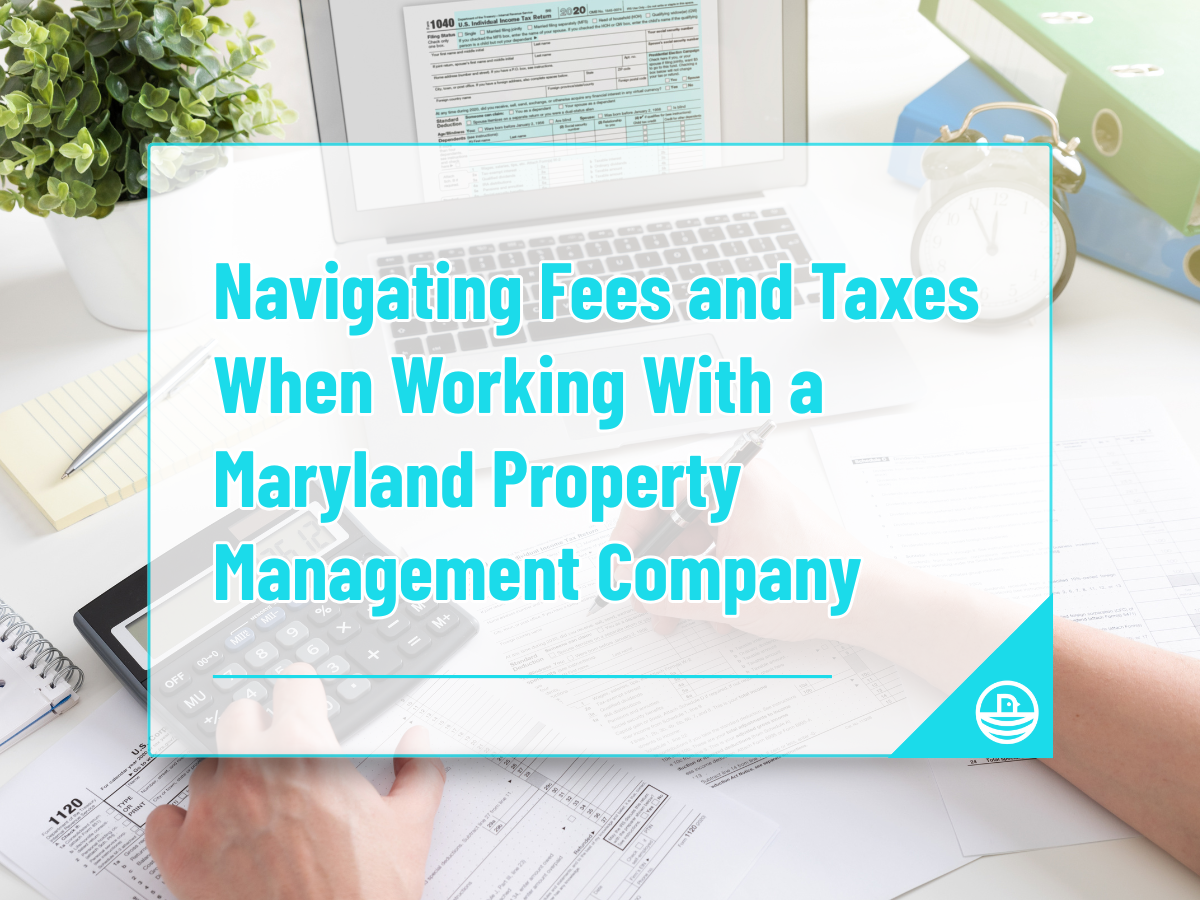Navigating Fees and Taxes When Working with a Maryland Property Management Company
Navigating the complexities of property management can be daunting, especially regarding the fees and taxes involved. For property owners in Maryland, aligning financial preparedness with local regulations is crucial. This article will delve into the various aspects of working with a property management company in Maryland, focusing on the financial elements that can significantly impact your investment. It will explore the importance of financial preparedness, property-related taxes, and the best practices for tracking expenses.
Introduction
Property management services can help landlords maximize their investment. However, engaging these services comes with fees and tax obligations.
From management fees to property-related taxes, being well-versed in the financial landscape can help property owners avoid unexpected costs and streamline their financial planning.
One of the primary considerations for property owners is the management fee structure, which can vary significantly from one company to another.
Typically, a property management company charges a percentage of the monthly rental income, often ranging from 8% to 12%. Additional fees may apply for services such as tenant placement, maintenance, and evictions. Some companies offer tiered pricing based on the number of properties managed, which can be advantageous for landlords with multiple investments. Understanding these fees in detail allows landlords to compare different management companies effectively and choose one that aligns with their financial goals.
In addition to management fees, property owners must also navigate various taxes that can impact their overall profitability. Property taxes, for instance, are levied by local governments and can fluctuate based on property value assessments.
The Importance of Financial Preparedness
Financial preparedness is not just about having enough money to cover expenses; it is about understanding the full scope of costs associated with property management. Before hiring a property management company, you should assess your financial situation and set a budget that includes management fees, maintenance costs, and potential taxes.
Property owners should also consider the long-term implications of these costs. A well-prepared financial plan can help mitigate risks and ensure that the property remains a profitable investment. This preparation also provides a buffer against unexpected expenses that may arise during the management of the property.
Owners should also factor in the potential for market fluctuations. Real estate values can change due to a variety of factors, including economic downturns, changes in local demand, or shifts in neighborhood desirability. By anticipating these changes and incorporating them into their financial strategy, property owners can make more informed decisions about when to buy, sell, or hold onto their investments.
Understanding the local real estate market can help in setting competitive rental prices, which is crucial for maintaining occupancy rates and ensuring steady cash flow.
Property owners should establish an emergency fund specifically for their real estate investments. This fund can cover unforeseen repairs, such as a broken HVAC system or significant plumbing issues, which can arise at any time. Having this financial cushion allows property owners to respond quickly to problems, thereby maintaining tenant satisfaction and protecting the value of the property.
Property-Related Taxes
In Maryland, property owners must navigate various taxes that can impact their overall financial strategy. Property taxes are typically assessed at the county level and can vary significantly depending on the location and value of the property.
Landlords need to be aware of income taxes on rental earnings, which can vary depending on the jurisdiction. Familiarizing themselves with tax deductions available for property owners, such as repairs, depreciation, and mortgage interest, can significantly reduce taxable income.
Additionally, property owners should be aware of other potential taxes, such as capital gains taxes upon the sale of the property.
Understanding how these taxes are calculated and when they are due is crucial for effective financial management. Each of these taxes can have a significant impact on the net income generated from the property, making it essential to factor them into any financial calculations.

Tracking and Reporting Expenses
Keeping detailed records of all expenses related to property management can provide a clearer picture of profitability and help in claiming deductions. This includes maintenance costs, management fees, and any other expenses incurred during the management process.
Utilizing accounting software or hiring a bookkeeper can streamline this process, ensuring that all financial transactions are recorded accurately. Regularly reviewing these records can also help property owners identify trends in spending and adjust their budgets accordingly.
Working with Tax Professionals: Hiring a Tax Professional
A qualified tax professional can provide valuable insights into tax deductions, credits, and strategies to minimize tax liabilities.
When hiring a tax professional, consider their experience with real estate and property management. A professional who understands the specific challenges and opportunities within the Maryland market can offer tailored advice that aligns with your financial goals.
Local Tax Regulations and Variations
Property owners should familiarize themselves with the tax laws applicable to their area. This includes understanding local property tax rates, any additional taxes that may apply, and the deadlines for payment.
Stay informed about changes in local tax regulations, as these can impact financial planning. Regularly consulting with a tax professional or local property management association can help property owners stay updated on any changes that may affect their investments.
Final Thoughts: Navigating Fees and Taxes When Working with a Maryland Property Management Company
Working with a property management company in Maryland can offer numerous benefits, but it also requires a solid understanding of the associated fees and taxes. By prioritizing financial preparedness and staying informed about property-related taxes, owners can make more informed decisions that enhance their investment's profitability.
If you’re ready to simplify your rental portfolio by hiring a top-tier property management company, reach out to Evernest’s Maryland team today!













